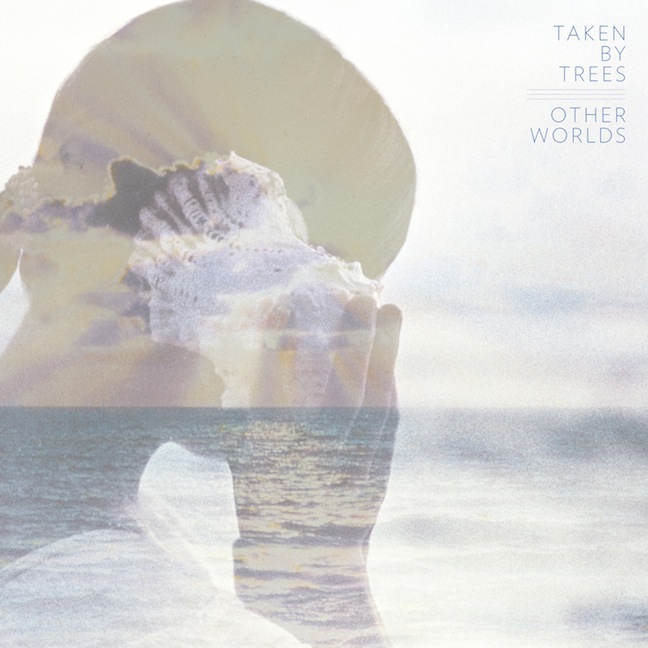Fifty-one years ago Hawaii was put on the musical map when Elvis Presley released his fourteenth album, Blue Hawaii. Spending twenty weeks at the top of the charts, and with over three million copies sold since its release date, it’s no wonder the record is one of the most successful of the 1960s. Since then, musicians have visited the islands and reminisced over them, or used the iconic imagery to create their own idea of escape. In other words, an album about and/or inspired by Hawaii is no new thing.
For someone like Victoria Bergsman, though, the idea and concept of releasing an album inspired by a visit to Hawaii isn’t one that reeks of gimmickry. Bergsman is a well-travelled musician whose last musical venture took her to Pakistan, resulting in the 2009 album East of Eden. The album was a mysterious, alluring and somewhat exotic little piece of escape where Bergsman managed to fit into her new setting comfortably while sounding like a new personality. On her latest album, Other Worlds, she sounds different, but this time it’s not quite as convincing.
What with Hawaii being a frequent destination for honeymooners, it’s of little surprise that Bergsman’s main capture is that of love. At times she sounds like she’s walking about on a beach, feverishly singing about her man, such as on “In Other Words,” where she lets him know that he can confide in her, and that he makes her “feel good.” Elsewhere she plays the part of a bachelorette walking past suitors, telling them “If you want my lovin’/ it’s not like any other / any other lovin’.” “Sometimes you just don’t get a second chance,” she sings in an almost dead-pan tone on “Large,” like she’s fed up of the love around her and would rather just go home.
All this to-ing and fro-ing makes for mixed results. On a track like “Dreams,” where she soothingly offers “I know a place where we can go / and you can get back on your feet, boy,” she sounds convincing and alluring in a way that’s fresh and detached from the darker undertones of East of Eden. While a line like “It makes me feel good” (from “In Other Words”) isn’t particularly original or deep, Bergsman sells it by singing with a warm coo. It’s when she sounds out of character that things trip up, such that the aforementioned come-on from “Not Like Any Other,” or “Your Place Or Mine” sounds, at best, like Zooey Deschanel’s New Girl character trying to be intense and sexy. That’s not meant to pigeonhole Bergsman, as she’s proved herself to be more than adaptable and quietly innovative, but on Other Worlds her lyrics lack that depth and intrigue previously present.
Thus Other Worlds is most effective at certain points. “Dreams” is a wonderful Balearic/ambient/tropical fusion that lulls you with its ambiguous lyrics (“Baby, in your dreams,” Bergsman sings, sounding like she both referring to what you actually dreamt about, and also like she’s informing you that you’re out of her league) and catches your attention with splashes of colour. “Large” is another interesting melding of styles, this time with a loose reggae rhythm and synthetic sweeps of violin. The track is only a little bit shy of being completely danceable, but its reserved nature plays in its favour, allowing the sonic detail to come to life. Doing exactly what it says on the tin, “Indigo Dub” offers a darkly colourful hue of the named genre, complete with a killer bassline while “Pacific Blue” shimmers like sunbeams on seawater with plenty of percussion.
If Bergsman’s lyrical content here isn’t quite as captivating as on previous outings, the shift in musical style certainly makes up for it. Reverberated pedal guitars, steel drums, marimbas, and plenty of wishy-washy ambience are the running sounds throughout the album, often cropping up in some form in near enough every track here. At the best of times it can catch you by surprise and you’ll bask for a moment in the way a guitar string twangs amidst its surroundings, or the surprise of the all too brief male backing vocalists at the end of “Highest High,” or just the idiosyncratic production touches from Henning Fürst. Sadly, all this sound can make for a whole that bleeds into itself and were there not moments like “Dreams” or “Large,” then the whole thing would be a sunny but soggy affair that would wash over your mind like the sea does over a name written in the sand.
The return of Bergsman had me revisiting East of Eden and asking why it captivated me (and many others) so thoroughly. Though a little hyperbolic when I wrote about it three years back, it’s still a great album that can easily captivate without you realising. I questioned why Other Worlds wasn’t having the same effect and it dawned on me that perhaps the reason is simply the location. East of Eden brought a Western audience the sound of a country that most aren’t familiar with, and it presented it with a sly (and tasteful) dose of Arabian Nights alongside its unassuming and wistful music.
Other Worlds, on the other hand, presents us Bergsman’s vision of Hawaii, which, while a foreign land of magical mystery to many, has had itself presented in many forms and by many artists before, thus diluting the island’s enigmatic draw. Although her version is interesting and doesn’t rely on simple stereotypes (there’s not a single obvious ukulele to be heard across the album’s forty-one minutes), it manages to feel both too specific and not quite specific enough; while it sounds like her own personal sound world and collection of memories, the album lacks that relatable hook to draw the listener in. In a way it’s all the fault of Blue Hawaii. Were it not for Elvis then, perhaps, Hawaii might still retain that bit of mystery and intrigue and Other Worlds might have been that bit more fascinating.

